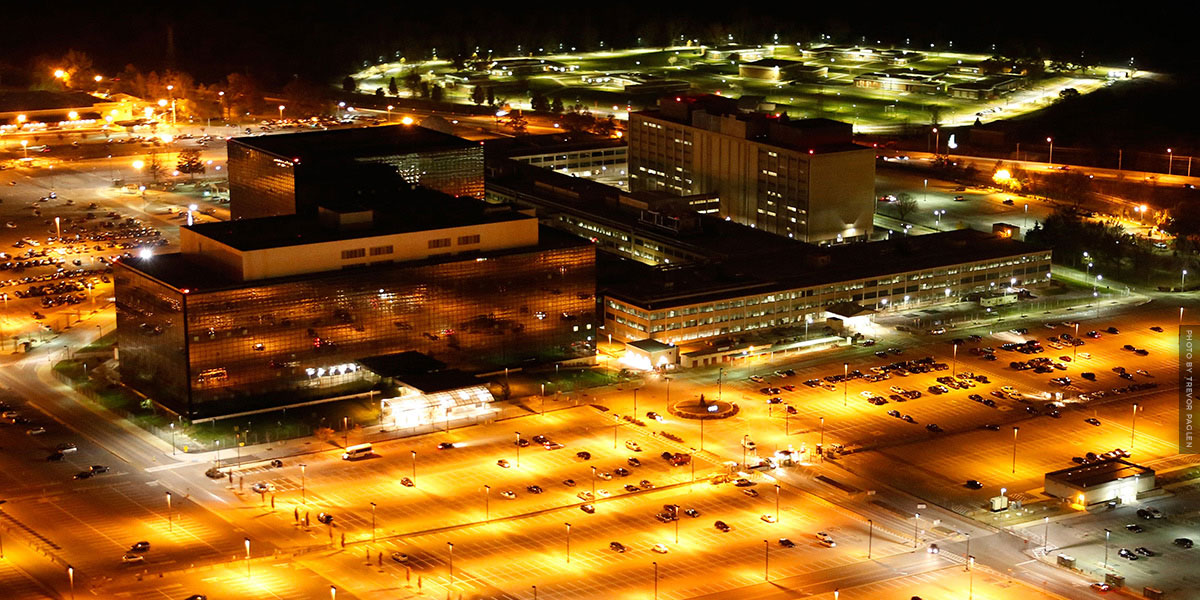We at EFF have long recognized the threats posed by the unchecked technological prowess of law enforcement and intelligence agencies. Since our founding in 1990, we have been in the forefront of efforts to impose meaningful legal controls and accountability on the secretive activities of those entities, including the National Security Agency (NSA). While the U.S. Senate’s Church Committee hearings and report in the mid-1970s documented the past abuses of government surveillance powers, it could not anticipate the dangers those interception and collection capabilities would bring to a networked environment. As Sen. Frank Church said in 1975 about an unchecked NSA, “No American would have any privacy left, such is the capability to monitor everything: telephone conversations, telegrams, it doesn’t matter. There would be no place to hide.” The communications infrastructure was still in a mid-20th century analog mode.
One of the first observers to recognize the impact of NSA’s capabilities in the emerging digital landscape was David Burnham, a pioneering investigative journalist and author who passed away earlier this month at 91 years of age. While the obituary that ran at his old home, The New York Times, rightly emphasized Burnham’s ground-breaking investigations of police corruption and the shoddy safety standards of the nuclear power industry (depicted, respectively, in the films “Serpico” and “Silkwood”), those in the digital rights world are especially appreciative of his prescience when it came to the issues we care about deeply.
In 1983, Burnham published “The Rise of the Computer State,” one of the earliest examinations of the emerging challenges of the digital age. As Walter Cronkite wrote in his foreword to the book, “The same computer that enables us to explore the outer reaches of space and the mysteries of the atom can also be turned into an instrument of tyranny. We must ensure that the rise of the computer state does not also mean the demise of our civil liberties.” Here is what Burnham wrote in a piece for The New York Times Magazine based on the reporting in his book:
With unknown billions of Federal dollars, the [NSA] purchases the most sophisticated communications and computer equipment in the world. But truly to comprehend the growing reach of this formidable organization, it is necessary to recall once again how the computers that power the NSA are also gradually changing lives of Americans – the way they bank, obtain benefits from the Government and communicate with family and friends. Every day, in almost every area of culture and commerce, systems and procedures are being adopted by private companies and organizations…that make it easier for the NSA to dominate American society…
Remember, that was written in 1983. Ten years before the launch of the Mosaic browser and three decades before mobile devices became ubiquitous. But Burnham understood the trajectory of the emerging technology, for both the government and its citizens.
Recognizing the dangers of unchecked surveillance powers, Burnham was a champion of oversight and transparency, and, consequently, he was a skilled and aggressive user of the Freedom of Information Act. In 1989, he partnered with Professor Susan Long to establish the Transactional Records Access Clearinghouse (TRAC) at Syracuse University. TRAC combines sophisticated use of FOIA with data analytics techniques “to develop as comprehensive and detailed a picture as possible about what federal enforcement and regulatory agencies actually do . . . and to organize all of this information to make it readily accessible to the public.” From its FOIA requests, TRAC adds more than 3 billion new records to its database annually. Its work is widely acclaimed by the many academics, journalists and lawyers who make use of its extensive resources. It is a fitting legacy to Burnham’s unwavering belief in the power of information.
As EFF Executive Director Cindy Cohn has said when describing our work, we stand on the shoulders of giants. With his recognition of technology’s challenges to privacy, his insistence on transparency, and his joy in telling truth to power, David Burnham was one of them.
Full disclosure: David was a longtime colleague, client and friend.


